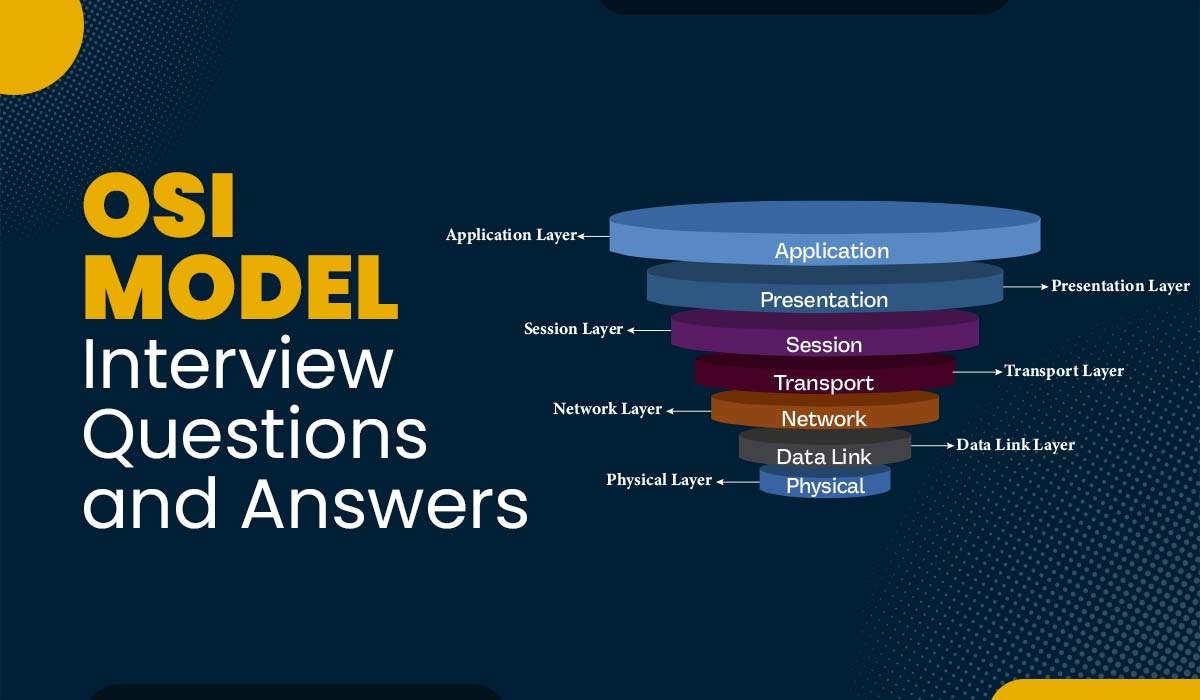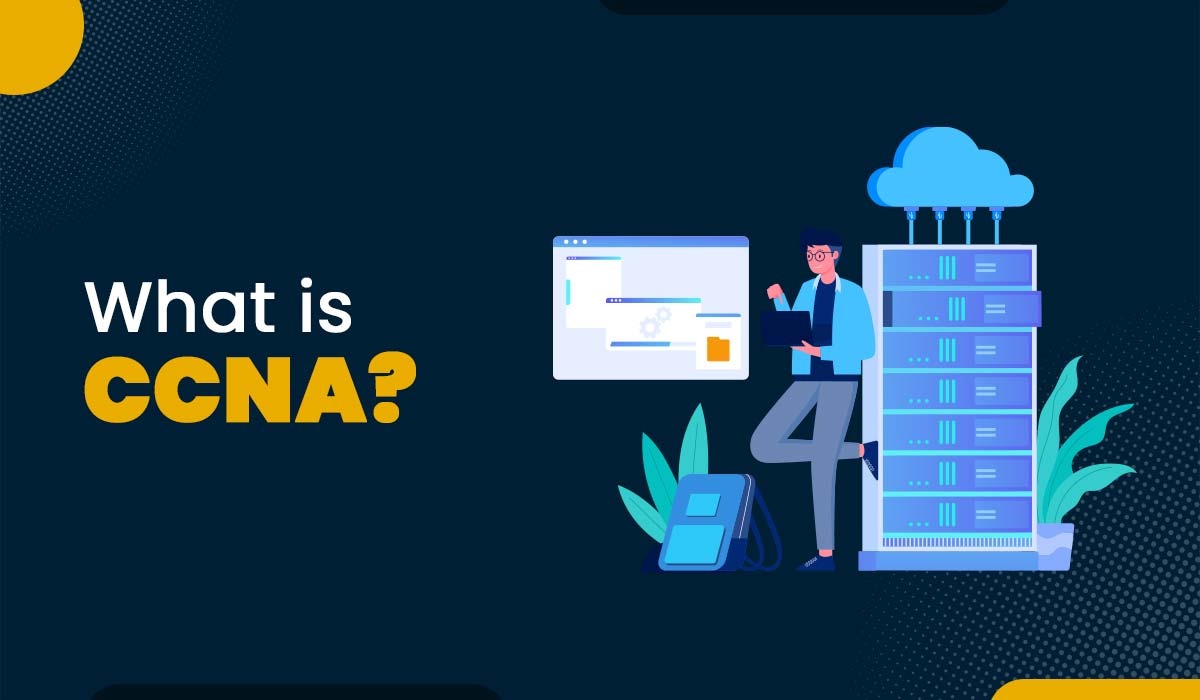Top DHCP Interview Questions and Answers

We go for interviews every now and then, and a little practice and preparation always pay off. So, If your answer to these questions is “YES”, then you are at the right place. We have curated a list of the top most asked DHCP Interview questions and answers to help all the budding network engineers. These interview questions are selected by some of the most experienced interviewers and networking industry experts. We hope you get to succeed in your interview with these DHCP interview questions but first, let’s take a look at DHCP. The Dynamic Host Configuration Protocol (DHCP) regulates the distribution and usage of IP addresses for networked devices. The Internet is strictly controlled by a set of rules and regulations known as protocols. IETF (Internet Engineering Task Force) standards govern all of these protocols. The importance of these public standards lies in the fact that they guarantee compatibility across devices and software worldwide, regardless of who made them. There is no other protocol quite like the DHCP. It’s a collection of rules that specifies how IP addresses should be requested and distributed throughout a network. Here are the most asked and must-know DHCP interview questions and answers: DHCP stands for Dynamic Host Configuration Protocol. It is a network protocol that assigns an IP address to hosts dynamically. It makes administration simpler and functions effectively in both very small and extremely big network setups. Any piece of hardware, even a Cisco router, can function as a DHCP server. DHCP works on the DORA Process (DISCOVER – OFFER – REQUEST – ACKNOWLEDGEMENT). A DHCP server can provide the following information: – Any computer that passes DHCP packets between clients and servers when they are not on the same physical subnet is known as a DHCP relay agent. When clients and servers are not on the same physical subnet, relay agents are used to forwarding requests and responses. The client notifies the server via a DHCP decline message that the network address is already in use (already assigned to another device). No, DHCP is not capable of distinguishing between a permanent MAC address and the address by the user. So, it cannot stop unauthorized access to a network and cannot control the IP addresses used by users. DHCP provides an IP to a client for eight days only. After eight days, that IP is taken from the client, and they have to ask for new IP from DHCP. This is known as an IP lease. There are 3 types of scopes in windows DHCP: There are many benefits of using DHCP for both users and industry professionals. Here are the top benefits of using DHCP: The domain name resolution for network resources is provided by DNS servers, which also links a client’s DHCP-assigned TCP/IP address to its fully qualified domain name. The DHCP and DNS servers used to be configured and managed at different times. So, if an administrator has to change the authorization right for one user on a group of devices, they have to reach both one by one and make the required configuration changes. Integrating DHCP and DNS allows gathering all these tasks across various devices as one. It enables enterprise networks to scale up with the number of users, devices, or policies while reducing manual operations and costs. This integration also provides operational efficiencies. If the DHCP server modifies a client’s IP address, the DHCP protocol does not automatically update DNS. Servers using Windows Server(r) 2008 and DHCP and clients running DHCP can register with DNS, enabling collaboration between the two to facilitate this interaction. Name-to-address relationships for the computer are synchronized when DHCP updates IP address information. These are the basic DHCP interview questions and answers. Let’s take a look at some advanced Interview Questions and Answers on DHCP for experienced Network Engineers. Here are some advanced DHCP Interview Questions and Answers for experienced candidates – DHCPInform is utilized by DHCP clients for obtaining DHCP parameters. For example, in the case of Windows 98 and 2000, the DHCPInform is utilized to obtain WINS server IP addresses, DNS domain names, and DNS server IP addresses by remote access clients. However, it is noteworthy that PPP (Public Private Partnership) remote access clients do not rely on DHCP to retrieve IP addresses for the remote access connection. Upon the completion of the IPCP negotiation, the DHCPInform message is transmitted. The DHCPInform message of the remote access server is subsequently forwarded to a DHCP server. When the DHCP Relay Agent is configured, the remote access server solely transmits DHCPInform messages. Definitely Yes. Nothing in the protocol prevents it; thus, it should be possible with any DHCP server. The client should continue to function normally, despite this problem on the server’s end. It’s called “manual allocation” in the RFC. APIPA stands for Automatic Private IP Addressing. It is a feature of the Windows operating. In the event that a DHCP server is unable to offer an IP address to a client because it is either down or unavailable, the computer assigns itself an IP address when there is no DHCP server available. When a DHCP client delivers a DHCP Request, the server responds with a DHCP NAK reply. If a DHCP server receives a DHCP Request, but no matching lease records exist, it will send a DHCP NAK message to the requesting DHCP client. This will indicate that the requested IP address is not accessible. IP Reservation is a feature that allows you to assign a specific IP address to a device on your network by using its MAC address. This way, the device will always have the same IP address whenever it connects to the network. IP Reservation is useful for devices that need permanent IP settings, such as printers, servers, or web services. IP Reservation can be configured on your router’s DHCP server settings or on a cloud service provider’s platform. DHCP spoofing is a feature that is included in Ascend Pipeline ISDN (Integrated Services Digital Network) routers, which link Ethernets to ISDN lines. This is a small server implementation that provides an IP address to a connecting Windows 95 PC to provide it with an IP number during the connection process. Leases for distinct addresses may be issued by two or more servers. One of those clients may lease an address from the other if both servers offer a dynamic pool that is available to them both, even if one server is inactive. But if there is no communication between the two servers to share information on current leases, any client that has a lease with one server will not be able to extend their lease with the other server if one server goes down. The purpose of the “server-to-server protocol” is to enable this kind of communication. It’s possible that some server providers used their exclusive server-to-server communication to solve this problem. Here are the following steps while authorizing a DHCP server in Active Directory Open DHCP: Basically, no, because DHCP is not capable of discriminating between a permanent MAC address and a user-supplied address. Due to this, it does not prevent unwanted network access and cannot manage the IP addresses used by users. A BOOTP protocol can be called as a TCP/IP protocol. it enables a client to obtain information from the network server such as the name of a load file and its IP address. There are two methods for instances where there are various LANs, each with a unique subnet number. A “BOOTP forwarding agent” is the component of such a server functioning as a router or router that achieves this. Usually, you should activate it on the interface to the subnet to be serviced and configure it with the DHCP or BOOTP server’s IP address. These are the top DHCP Interview Questions for experienced candidates. Now we have covered all important DHCP interview questions and answers for both freshers as well as experienced candidates. Learning all these questions will definitely help you in your interview preparation. We hope you like these questions and wish you all the best for your interview. Please do comment in the comment box below to share your valuable feedback.Introduction
About DHCP
Basic DHCP Interview Questions and Answers
Q1 – Explain DHCP.
Q2 – How do DHCP works?
Q3 – What information can a DHCP provide to the Host?
Q4 – What is the purpose of a DHCP relay agent?
Q5 – What is the DHCP decline message?
Q6 – Can DHCP prevent unauthorized laptops from using a network that uses DHCP for dynamic addressing?
Q7 – What is an IP lease?
Q8 – Explain different types of scopes in Windows DHCP.
Q9 – What are the benefits of using DHCP?
Q10 – Explain integration between DHCP and DNS.
Advanced DHCP Interview Questions and Answers
Q11 – What Is DHCPInform?
Q12 – Can DHCP Support Statically Defined Addresses?
Q13 – What do you mean by APIPA IP address?
Q14 – What is the DHCPNAK message?
Q15 – What exactly is IP Reservation?
Q16 – What is DHCP spoofing?
Q17 – What are the possibilities for a DHCP server to serve as a backup for another DHCP Server?
Q18 – How do you authorize a DHCP server in an active directory open DHCP?
Q19 – Is it possible for DHCP to prevent illegal laptops from connecting to a DHCP-based network?
Q20 – Do you know how DHCP and BOOTP(Bootstrap Protocol) deal with numerous subnets?
Conclusion







